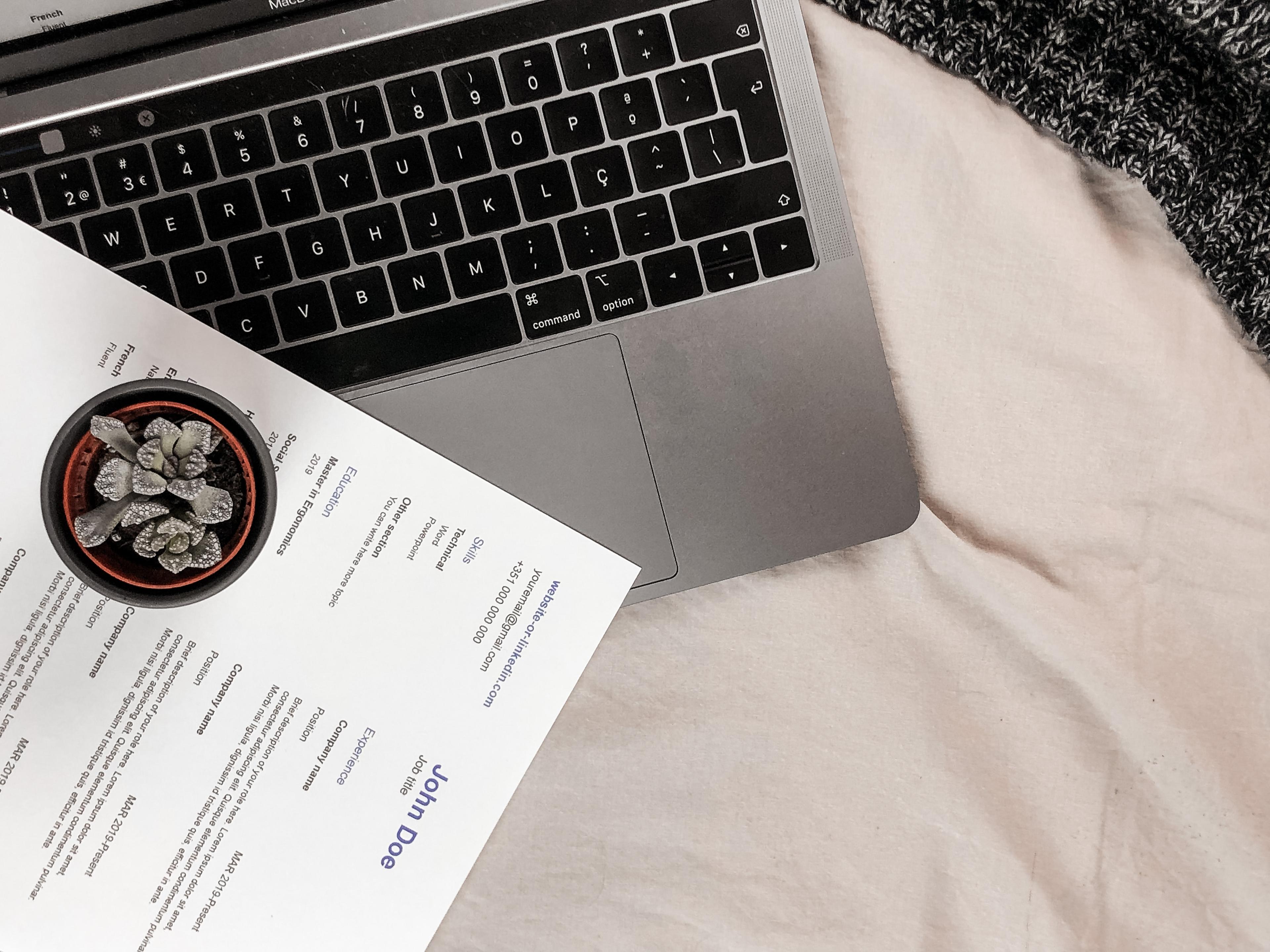How to Answer the "Why JP Morgan?" Interview Question
Struggling with the why JP Morgan interview question? Learn what recruiters want to hear and how to craft a standout, tailored response that gets you hired.
Posted September 1, 2025

Table of Contents
If you’re preparing for finance interview questions, the Why JP Morgan interview question will almost certainly appear. Recruiters ask it in every interview stage because it tests your research, your motivation, and whether you truly understand the firm, the position, and the team.
This article gives you an expert framework, sample answers, a bank of interview questions, and tactical tips so your answers feel human, specific, and memorable in any job interview setting, from phone screen to Superday. By the end, “why JP Morgan” won’t be a hurdle; it’ll be your strongest moment in the interview.
Read: JP Morgan Interview Guide: Process, Questions, & Tips
What Interviewers Really Mean by “Why JP Morgan”
When an interviewer asks the classic why JP Morgan interview question, they’re probing far deeper than surface-level enthusiasm; they’re evaluating four critical dimensions of your candidacy. First, they want to see fit with the firm: whether you understand JP Morgan as a global bank and industry leader, with unique businesses, a distinctive culture, and a strong community, and whether you can directly connect that knowledge to the position you’re pursuing.
Second, they assess your readiness for the role by looking at how well you’ve translated your skills into tangible value for the company’s customers, asking whether your examples make sense and inspire confidence in your ability to contribute from day one. Third, they seek proof, not vague claims but concrete answers backed by measurable outcomes, ideally delivered through the STAR method (Situation, Task, Action, Result), which allows you to highlight real impact you’ve driven and how you’ll replicate it at the firm.
Finally, they look for a signal of commitment: do you stand out as someone who will not only meet deadlines and push through challenges, but also actively seek feedback, support your team, and grow a long-term career within JP Morgan? A strong response weaves all four seamlessly, showing both intellectual grasp of the business and genuine passion for being part of it.
Read: How to Answer “Why This Firm?” and “Why Investment Banking?” in Interviews
The 3-Part Framework That Produces Strong Answers
The best candidates approach the why JP Morgan interview question with a disciplined framework that keeps their response concise, persuasive, and memorable. Think of your answer as a three-act story that should take about two and a half minutes to deliver. Each section has a clear purpose and should flow naturally into the next.
1. Firm Fit (30–40 seconds)
Begin by showing that you’ve done more than skim the careers website. Identify one or two specific reasons you’re drawn to JP Morgan: its reputation as an industry leader, its innovative role in investment banking, or its commitment to community impact. What matters is specificity. If you simply say, “It’s a top bank,” you’ll sound like every other applicant. Instead, ground your response in concrete evidence from the firm’s initiatives, page highlights, or conversations with current employees.
Example Answer: “I was especially impressed by JPMorgan’s $30 billion racial equity commitment. That type of long-term investment in underserved communities resonated with me because I’ve seen firsthand the difference financial access makes. Pairing that with the firm’s global reach reinforced why this is where I want to grow my career.”
2. Role Readiness (60–75 seconds)
Next, pivot from why the firm excites you to why you’re ready for the specific position. This is where you translate your skills into value. Pick two abilities that connect directly to the responsibilities listed on the role page and illustrate how they’ll help you contribute on day one. Avoid vague buzzwords like “hardworking” or “team player.” Instead, frame your answers around measurable impact and day-to-day relevance.
Example Answer: “In my internship, I led a client account analysis that uncovered inefficiencies in portfolio allocations. That work increased wallet share by 12% and gave me practical exposure to asset allocation. I see the same need at JPMorgan, particularly in Asset Management, where your focus on sustainable investment strategies requires analysts who can combine technical rigor with client-centric thinking. My ability to synthesize complex data into actionable insights is exactly what this team demands.”
3. Proof via STAR (45–60 seconds)
Finally, anchor your answer with proof. Use the STAR method (Situation, Task, Action, Result) to show that you’ve already faced similar challenges and delivered real outcomes. This technique prevents your responses from sounding like empty claims and provides the interviewer with a concrete mental picture of how you’ll operate inside their firm. Close by looking ahead, underscoring how you’ll contribute to the team, seek out feedback, and grow with the company in the future.
Example Answer: “In my last role, I noticed inefficiencies in how our team was managing financial data. The task was to rebuild reporting structures under tight deadlines. I took the action of redesigning the workflow, collaborating with tech partners, and stress-testing the new models. The result was a 25% reduction in processing time and more accurate outputs that leadership relied on for quarterly decisions. At JPMorgan, I want to apply the same initiative: solving problems, embracing feedback, and helping the team deliver at scale.”
How to Use the STAR Method for Stronger Answers
The STAR method is most often applied to behavioral interview questions, but it’s equally powerful when addressing “Why JP Morgan.” It structures your narrative, prevents rambling, and demonstrates analytical clarity. Start with the situation that drew you to the firm, define the task you set for yourself in understanding it, outline the actions you took, and finish with the result that solidified your conviction.
Example: “After hearing a JPMorgan VP speak at my university, I became curious about the firm’s approach to global markets. The task I gave myself was to explore whether this was the right environment for me. I took the action of completing a financial modeling course, networking with alumni in internships, and shadowing a banker to better understand daily responsibilities. The result was clear: I discovered that I thrive in fast-paced environments where I can merge analytical rigor with client impact, and that realization confirmed my desire to join JPMorgan’s Markets team.”
By blending the three-part framework with STAR, your answers will move beyond rehearsed talking points. They’ll reflect intellectual depth, authenticity, and a clear understanding of how you can add value to an industry leader like JP Morgan, leaving a lasting impression on any interviewer.
How to Research JP Morgan (Fast, Credible, Specific)
To give answers that feel earned, not generic, do this before the interview:
- Visit the website/site/page - Skim business line overviews, leadership letters, sustainability reports, and the newsroom. Refer to two items in your answers to show sense for the business.
- Talk to current employees - Ask for feedback on the culture, training paths, and what strong analysts/associates do differently. Mention this contact in the interview.
- Review role postings and your candidate account - Note the position’s required skills, typical course/certs, and how the team works with adjacent groups. Keep this open in your account for quick review while preparing.
- Scan earnings & product notes - A sentence on client growth, tech investment, or risk discipline makes you sound like an insider who understands the bank and its customers.
Sample Answers (Tailored to Real Roles)
Investment Banking Analyst — M&A (Example Using STAR)
Why JP Morgan: “I’m drawn to JP Morgan because it’s an industry leader across advisory, with a track record of complex cross-border deals and a collaborative culture. In research calls with current employees, I heard repeatedly that junior bankers get meaningful execution reps early, plus clear feedback loops. That balance of responsibility and support is exactly where I’ll thrive.”
Role Readiness + STAR: “In my last position, I owned a buyer list build and account diligence for a mid-market sell-side. Situation/Task: The seller’s EBITDA add-backs were disputed. Action: I rebuilt the model, segmented add-backs, and built a sensitivity that improved interviewer confidence in valuation ranges. Result: We aligned buyer responses, advanced three IOIs, and improved the final purchase price by 6%. I’m excited to bring that rigor to JP Morgan deal teams.”
Future: “Near-term, I want to sharpen execution in your Industrials group; long-term, I hope to mentor associates and lead analyst training. That’s why, when I get the why JP Morgan interview question, my answer is about your people, your process, and your platform.”
Commercial Banking / Payments — Client Coverage
“I’m excited about JP Morgan because its integrated Payments platform and treasury solutions give mid-market customers access to tools they usually find only at large corporates. I spoke with a banker about onboarding accounts and learned how product specialists partner with coverage—precisely the team model I want. Prior work: I led a cash-management analysis that identified idle balances and reduced fees by 18%. I’m ready to bring that helpful client-first mindset, ask for feedback, and grow a long-term career supporting regional business clients.”
Global Markets — Sales & Trading (Markets Internship)
“Two reasons I’m targeting a Markets internship position at JPMorgan: first, your multi-asset platform and electronic trading innovation; second, the culture of apprenticeship I heard about from associates. In a markets course, I ran an options investment strategy and wrote daily notes for our student fund. I’ll contribute by doing the unglamorous prep, tracking responses to macro catalysts, and sharing crisp trade rationales. My passion for the seat shows up in consistent practice and willingness to iterate based on feedback.”
Use these sample answers as templates. Swap in your own metrics and interests, then practice aloud so the interview delivery feels natural.
25 JP Morgan Interview Questions You’re Likely to Encounter
Expect a mix of behavioral, technical, and firm-fit prompts. (You’ll also see overlaps with JPMorgan Chase interview questions you’ll find online.)
Firm & Fit
- The classic why JP Morgan interview question.
- What do you know about JPMorgan’s businesses?
- Why this position and team at this stage of your career?
- How would you describe our culture and community?
- What differentiates our firm from other banks?
Behavioral / STAR
- Tell me about a time you handled a challenge under pressure.
- Walk me through a time you incorporated tough feedback and improved.
- Describe a project you led to success and your role in the outcome.
- How do you prepare for high-stakes meetings and client interview-style panels?
- When did you collaborate across functions to serve customers better?
Technical / Role-Specific
- Pitch an investment you like in today’s market.
- Walk me through a DCF.
- How do the three statements link?
- What risks would you expect in this deal?
- Explain how payment rails work and where you’d innovate.
Read: IB Technical Interview Guide & Questions (With Sample Answers)
Process & Practical
- What do you expect from analyst training?
- Describe your best interview setting and how you adapt to virtual vs. in-person.
- Where else are you interviewing and why?
- What would your manager say about you?
- Any questions for us?
Pro tip: For each of these interview questions, prepare two crisp answers using the star method and rehearse until your delivery makes sense without memorization.
The JPMorgan Chase Interview Process: Stages, Timing & How to Navigate
| Stage | What to Expect | Expert Navigation Tips |
|---|---|---|
| Application & Online Assessment (OA) | Submit through the official website and track progress in your candidate account. Most applicants receive a Pymetrics-style assessment or coding/logic tests (for technical roles). Timelines are tight—often just a few days after application. | Complete the OA within 24–48 hours to signal strong motivation and reliability. Use practice platforms to sharpen quantitative, situational judgment, and logical reasoning skills. Treat this stage as a filter: only those who move quickly and score well advance. |
| First-Round Interview | Typically a 30–45 minute virtual or phone interview led by a recruiter or junior banker. Focus is on resume walk-through, behavioral interview questions (especially the why JP Morgan interview question), and light technicals. | Keep answers tight (2–3 minutes). Use the STAR method to deliver structured stories. Expect common questions about leadership, teamwork, and career interests. Keep your tone helpful, professional, and natural, showing both preparation and flexibility. |
| Superday / Final Round | A half-day to full-day event with back-to-back interviews involving analysts, associates, and VPs. Mix of technicals, case-style scenarios, and cultural fit assessments. You’ll also get a chance to ask questions. | Prepare for endurance. Anticipate feedback on earlier answers and build on it. Tailor your approach to each interviewer. Analysts may probe technical details, while VPs evaluate long-term fit and career goals. Ask thoughtful questions about team dynamics, training support, and growth opportunities. |
| Offer & Onboarding | Successful candidates often hear back within days, sometimes hours. Official communication comes through email and your candidate account. The process includes background checks and digital paperwork. | Stay professional and responsive. Confirm details promptly and review onboarding materials carefully. Reach out to your recruiter contact with clarifying questions. Use this stage to reinforce enthusiasm and signal readiness to succeed. |
Expert Insight: Across all stages, candidates who demonstrate agility, intellectual curiosity, and genuine connection to the firm tend to stand out. Sending tailored thank-you emails after each interview that highlight one specific insight you gained creates a lasting impression and positions you as thoughtful and engaged.
Common Mistakes That Cost Candidates the Offer
Let’s break down what not to do when answering this interview question:
| Mistake | Why It Hurts |
|---|---|
| Vague praise (“It’s a great company”) | Lacks depth and sounds generic |
| Talking only about yourself | Misses the firm’s values and goals |
| Reciting your resume | You’re not answering why JPMorgan |
| Forgetting to mention the role | Shows poor preparation or research |
| Overusing buzzwords without proof | Weakens your credibility |
One-Page Prep Plan (Night Before Your Interview)
- Research review (15 min) - Visit the careers site, skim the role page, and write two “why JP Morgan” bullets. Refer to them in the interview.
- Framework reps (20 min) - Rehearse Firm Fit → Role Readiness → STAR. Aim for two polished answers to the why JP Morgan interview question.
- STAR sprints (20 min) - Draft four STAR answers: one leadership challenge, one client win, one modeling or product build, one tough feedback loop that led to success.
- Question bank (10 min) - Prepare three thoughtful questions that show interest in the team and the business.
- Logistics (5 min) - Confirm interview setting, tech, time zones, and recruiter contact. Bring resumes and a clean notepad; small details build confidence.
Quick Reference: “Why JP Morgan” Answers You Can Customize
- “JP Morgan’s global platform and disciplined risk culture provide not only rigorous technical training but also exposure to high-stakes projects early in my career. That combination of scale and accountability is where I know I’ll thrive and contribute meaningfully.”
- “The collaborative community I’ve learned about through conversations with associates emphasizes frequent feedback, structured mentorship, and a culture of continuous growth. That environment mirrors how I’ve developed in prior roles and is the kind of team I want to be part of.”
- “What excites me about JP Morgan is the dual focus on client success and product innovation, especially in investment banking and Payments. Those priorities align directly with my interests in sustainable finance and my prior work analyzing high-impact client accounts.”
- “I’m motivated by opportunities to prepare for leadership while adding value from day one. At JP Morgan, that means contributing to high-impact accounts, embracing feedback, and positioning myself to grow into a role where I can mentor others and drive long-term client success.”
Use one or two of these in your opening, then pivot to STAR proof.
Final Word (and How to Stand Out)
The why JP Morgan interview question is an invitation to connect your story to a world-class firm. Show you did the research, demonstrate day-one skills, and prove impact with the star method. Deliver answers that make sense, feel human, and leave a strong impression, and you’ll be the candidate they want to hire.
If you want expert review and live feedback, do a mock interview with an investment banking coach. You’ll prepare faster, get sharper answers, and walk into every interview with real confidence.
Browse top investment banking coaches and book a free intro call today. The right coach can help you refine your story, stress-test your delivery, and give you the insider edge to stand out at JP Morgan and beyond. Also, check out investment banking bootcamps and free events and group classes for more strategic insights!
Read these next:
- JP Morgan HireVue Questions (and How to Answer Them)
- Investment Banking Interview Guide: Process & Tips
- Goldman Sachs Interview Guide: Process, Questions, & Tips
- Morgan Stanley Interview Guide: Process, Questions, & Tips
- Superday Interview: What to Expect, How to Prepare, and How to Stand Out
FAQs
What’s the best way to answer the ‘Why JP Morgan’ interview question without sounding fake?
- The key is to balance firm knowledge with personal authenticity. Don’t just say “JP Morgan is prestigious.” Instead, point to something specific you admire, like the firm’s leadership in Payments or its culture of feedback, and then connect it to your own experiences. For example: “I value feedback-driven teams because that’s where I’ve grown the most. So when I learned how JP Morgan analysts get frequent coaching from associates and VPs, it resonated with me.” That blend of personal fit plus firm-specific detail makes your answer believable.
How long should my Why JP Morgan answer actually be?
- Two to three minutes is the sweet spot. Shorter than that, and it feels underdeveloped; longer, and you risk rambling. Think of it as a three-act story: why the firm fits you, why the role fits you, and one STAR-based proof point (Situation, Task, Action, Result). Practice until you can hit all three smoothly in under three minutes.
What if I don’t have a finance internship yet? How do I still give a strong answer?
- If you don’t have direct finance experience, lean on transferable skills and evidence of genuine interest. Talk about experiences where you analyzed data, worked under pressure, or delivered results for a team, then tie those directly to what analysts at JP Morgan do. Also, highlight how you’ve proactively prepared: maybe you completed a financial modeling course, joined an investment club, or shadowed a banker. Showing initiative proves you’re serious, even if you don’t yet have formal banking credentials.
What kind of research should I do before the interview?
- Go beyond skimming the website. Read the most recent quarterly earnings, scan press releases about product launches or strategic initiatives, and talk to at least one current employee for an insider perspective. Then, build two or three “hooks” you can drop into your answers: for example, “I was impressed by JP Morgan’s recent $30B racial equity commitment. It aligns with my passion for economic access.” Research like this shows you’re informed and makes your answer stand out.
Do I need to memorize my answer word for word?
- No. Memorization kills authenticity. Instead, prepare a flexible framework: firm fit, role readiness, and one STAR example. Write down the bullet points you want to hit, practice saying them out loud, and record yourself to check pacing. By the time of the interview, you should sound conversational, not rehearsed. Think of it less like reading a script and more like telling a polished story you’ve told before.











